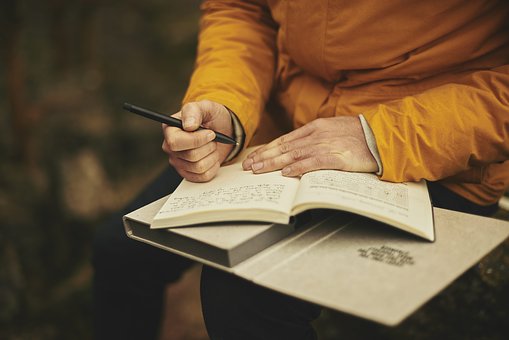Beobachtungen zum Thema “Klimawandel”.
Ich gehörte einmal zu den Menschen, die “Wetter” und “Klima” nicht unterscheiden. Wenn immer es ein Unwetter gab, in der Nähe oder irgendwo anders auf der Welt, kam es mir leicht in den Sinn, dies mit dem “Klimawandel” zu begründen. Das war begleitet von einem Gefühl der Unfähigkeit, irgendetwas dafür oder dagegen tun zu können, ähnlich wie bei Erdbeben, wofür die beste Strategie ist, sich darauf vorzubereiten, damit der Schaden begrenzt bleibt. Erdbeben abstellen zu wollen durch irgendwelche Maßnahmen scheint wohl keinem eine realistische Möglichkeit. Aber die Erde aufzuhalten sich auch äußerlich klimatisch zu verändern doch schon. Oder?
Das Klima der Erde soll mit drastische Maßnahmen beeinflusst werden, deren Folgen wohl noch keiner der Befürworter so richtig überdacht hat. Als Mir klar wurde, dass mittlerweile nicht nur ein paar Aktivisten für das Klima “kämpfen”, sondern überall Lobby dafür gemacht wird, machte mich das neugierig, und ich begann, mich mit dem Thema näher zu beschäftigen. Bis dahin war es mir nicht wirklich wichtig erschienen, denn ich hielt das Thema “Klima” nur für ein weiteres in der Reihe der üblichen Panikmache, die ja regelmäßig in die Gesellschaft geflutet werden.
Aus der Perspektive der Entwicklungsstufen des Bewusstseins: das alte Spiel
Ich war nicht besonders gut auf der Uni, hatte nur eine zwei im Magisterexamen, aber was ich beim Mathematik Studium gelernt habe, ist logisch denken können, wenn immer es notwendig erscheint. Dazu gehört es, nachzuforschen, Beweise zu suchen, nichts “einfach so” zu glauben, vor allem wenn es erhöhte Wichtigkeit hat. Im normalen Alltagsleben kann man ja mal ein paar MIlchmädchenrechnungen machen, ohne dass eine Katastrophe eintritt, bei Themen, von denen das Wohlergehen der Gesellschaft und eventuell der ganzen Welt abhängt, ist das absolut nicht akzeptabel.
Als ich zum Thema Klimawandel erwachte, sah ich die Gesellschaft (in Deutschland, aber auch in anderen westlichen Ländern) aufgeteilt zwischen Menschen, die steif und fest glauben, wir Menschen würden selbst verschuldet untergehen durch CO2 Ausstoß, und die anderen, die wagen, das anzuzweifeln, und dann als “Klimaleugner”, kurzum als Bösewichte, abgestempelt werden – während die Befürworter der CO2 Apokalypse selbstverständlich die Guten sind.
Gut und Böse – der Weg durch die Stufen
Gut und Böse, Schwarz und Weiß, Das alte Lied:. Dies ist der Mindset, der seit alters her Unfrieden, Spaltung und Krieg hervorbrachte. Im feudalen Gefüge bestimmte der Feudalherr, was und wer in die Kategorie “Gut” oder “Böse” gehörte, das Volk hatte nichts zu melden. Dann erklärten die Religionen, was entsprechend richtig oder falsch war. Die Menschen verinnerlichten das, dank ihres Glaubens. Man könnte auch sagen, sie kollaborierten freiwillig mit dem System.
Mit dem Aufkommen der modernen Wissenschaft wollte man endlich ganz genau wissen, wie die Dinge bestellt sind. Man stellt Hypothesen auf, die so lange als “wahr” gelten, solange sie nicht durch Evidenz widerlegt werden. So näherte man sich iterativ an immer mehr “Wahrheit” oder “Richtigkeit” an, und damit war auch “Gut und Böse” in der Form von “Richtig und Falsch” bestimmbar, jedenfalls immer bis zur nächst besseren Erkenntnis.
Dann, in der Postmoderne, tauchten die “Gutmenschen” auf, in einer Variante der feudalen Zeit, nur das jetzt nicht mehr direkt von oben bestimmt wurde, was als richtig oder falsch anzusehen wäre. Jetzt kann scheinbar jeder Mensch selber bestimmen, was gut und was schlecht ist und sich entsprechend in Lagern von Gleichgesinnten organisieren, die kollektiv ihre Weltsicht und Glaubenssysteme als die einzig richtigen darstellen, während die anderen, die “Ungläubigen”, natürlich die Bösen sind: Und das in Zeiten, wo man sich längst vom “Opium für das Volk”, von den Religionen, losgesagt hatte und man nun annimmt, dass man selber im Interesse der ganzen Gesellschaft, ja der ganzen Welt handeln würde!
Die Glaubenskriege des 21. Jahrhunderts. – Wissenschaft als Erkenntnis-Technologie wird auf den Kopf gestellt und damit beliebig manipulierbar..
In den 60ern hieß es, an die Selbstverantwortlichkeit des Individuums appellierend: “Stell Dir vor, es gibt Krieg, und KEINER geht hin!” Wir sind heute in einem Glaubenskrieg und viel zu viele Menschen gehen hin, kämpfen für ihre Ideale und scheinen sich wenig bewusst zu sein, was sie da eigentlich machen.
Es ist cool in der Postmoderne, das eigene Gefühl und die eigenen Überzeugungen als das Non Plus Ultra zu sehen, als die eigentliche “Wahrheit”. Früher sagte man zu jemanden in dieser Ausdrucksform, er habe “die Weisheit mit Löffeln gefressen”, er oder sie galt als Schlaumeier. leichtgläubig und unseriös. Heute ist die übertriebene Subjektivität normal. Wissenschaft, einstmals ein ernsthafter Versuche, mit Neugierde Dinge zu erforschen, wird heute entweder als irrelevant abgelehnt, da sie ein Werkzeug des bösen Patriarchat ist, oder sie wird manipuliert, aufbereitet, gefügig gemacht. Sie dient nicht mehr der vertieften und ständigen Suche nach Wahrheit, sondern wird selektiv eingesetzt, um “Beweise” zu finden für etwas, was man a priori für wahr und richtig hält. Statt neutral zu forschen werden zur Hypothese passende Arbeiten selektiert und die anderen, dem angestrebten Ergebnis widersprechenden, ignoriert und übergangen.
Die neuen Religionskriege und die Bedeutung von “progressiv”
Wer eh schon ganz genau weiß, was richtig oder falsch ist, der braucht sich ja mit Gegenargumenten nicht befassen. Er braucht sich keiner Diskussion zu stellen. Er wird eher versuchen, Diskussionen zu vermeiden, denn da könnte er ja nach den Quellen gefragt werden, auf die sich seine Überzeugungen stützen. Und auch die könnten von den anderen hinterfragt werden und da müsste man stichhaltige Antworten haben, eben nicht nur Glaubenssätze, sondern Evidenz. Das scheint mir der Grund zu sein, warum heute diese so dringend notwendige Diskussion nicht stattfindet, denn Glauben kann man gemeinhin nicht rational begründen, offenbar auch dann, wenn die Themen wissenschaftlicher Natur sind.
Bedeutet heute “progressiv” sein, den Manipulatoren zu glauben, sobald es sich richtig anfühlt?
Warum sind heute die sogenannten “Progressiven” – von denen man immer annahm, sie befänden sich an der Vorfront der Gesellschaft – zurückgefallen auf frühere Strukturen des Bewußtseins? Warum verhalten sich so viele Menschen wie fundamentalistisch Gläubige, was wir mit dem Abklingen des Christentums im Westen ad acta gelegt zu haben glaubten? Und warum lassen sie sich von der neuen feudalistischen Herrschern einfach so bestimmen? Warum lassen sie sich vorschreiben, was sie zu glauben haben? Und warum glauben sie, aus eigener Überzeugung zu handeln und merken nicht einmal, wie sehr sie erfolgreich manipuliert und fremdbestimmt werden?
Es gibt wohl keine eindeutige und umfassende Erklärung dafür. Sicher scheint mir, dass es zur Natur des Menschen gehört, an etwas glauben zu wollen, was Sinn macht und Orientierung bietet. GOTT ist dafür ziemlich erfolgreich abgeschafft worden, nun ist auch die Wissenschaft von einem Instrument für Wahrheitssuche zu einem Selbstbedienungsladen in Glaubensfragen geworden. Spirituelle Gemeinschaften und weltliche Kulte, politische Gruppierungen, Fanclubs von was auch immer, bieten Möglichkeiten, die Leere aufzufüllen. Nur hat man heute statt dem EINEN Gott eine Unzahl von Göttern, deren Anhänger bis aufs Messer überzeugt sind, dass ihr Gott der einzig wahre Gott ist.
Die alten Religionskriege emergieren in neuer Form, und einer davon ist der “anthropogene Klimawandel”. Oder ist es ein “politogener Klimawandel”, unsere politischen Mächte, die ein Interesse daran haben, uns die “Wahrheit” unserer individuellen Schuld am Klimawandel zu füttern, um uns Schuldgefühle zu machen, die sie dann ausnützen können.Sie schaffen es doch tatsächlich, uns zu Ablasszahlungen zu motivieren in Form von Steuern und hohen Energiepreisen, und mit gelenktem Konsum von favorisierten Gütern wie E-Autos.
Cui bono? Und die Techniken der Manipulation.
Die tiefergehende Frage wäre dann: wer steht dahinter? Jemand, der Geld machen möchte, das scheint mir logisch. Und der es vermeiden will, in eine Diskussion über den Sinn der Forderungen hineingezogen zu werden. Wer immer das ist – und ich gehe nicht davon aus, dass das eine einzige Person ist -, der, oder besser: “die” wissen genau, wie sie ihre Ziele erreichen können. Aus der Psychologie wissen wir ja ziemlich gut, wie man Menschen dazu bringen kann, Gedanken und Meinungen zu haben, die von anderen stammen, aber als eigen wahrgenommen werden. Wir Menschen sind leicht täuschbar und manipulierbar, vor allem, wenn wir nicht ständig auf der Hut sind und die Dinge hinterfragen.
Beispiel Medien
Die Medien sind ein hervorragendes Studienobjekt für gelenkte Meinungsbildung. Es ist interessant, wie Reportagen regelmäßig auf der Seite der “Klimahysteriker” stehen, bestimmte Reizwörter benutzen und gezielt Objekte und Daten auswählen, die die gewünschte Überzeugungsarbeit unterstützen sollen. Gegenargumente werden oft gar nicht erst erwähnt, geschweige denn darauf eingegangen. Ich hatte jahrelang kein deutsches Fernsehen mehr angesehen – und aus diesem Abstand heraus finde ich es jetzt besonders interessant, zu beobachten, welche dort besprochenen Themen ausgewogenen Information geben und welche eher durch suggerierende Informationen und “weiße Lügen”, also durch Unterlassung anderer Perspektiven, manipulativ mit unschuldiger Miene an den Mann, die Frau und das Kind gebracht werden.
Das ist im italienischen Fernsehen nicht viel anders. Umso erfrischender fand ich es letzthin, als ein Meteorologe des aeronautischen Wetterdienstes im offiziellen Wetterbericht zum “glühenden Weihnachten” Stellung nahm: Tagestemperaturen um die 18 Grad seien punktuell in dieser Jahreszeit absolut in der Norm. Aber dass diese ausgerechnet auf die Weihnachtstage fallen, ist generell nicht vorhersehbar. Dieses Jahr war es so, und ist wohl deshalb den Leuten als Anomalie geschienen, die dann in den Medien als weiterer “Beweis” für die dramatische Erderwärmung verwendet werden sollte. Die Nachrichtensprecherin hatte offenbar eine andere Erklärung angesteuert. Es ist lobenswert, wenn sich ein Experte um die Fakten bemüht und nicht den Einflüsterungen folgt.
Ab auf die Schiene
Ach, und noch was: ein interessanter Beitrag im deutschen Fernsehen: Der Klimawandel soll mit dem Umsteigen von Menschen und Ware auf die Bahn bekämpft werden. In der Reportage wurde überdeutlich, dass schon jetzt die Bahn mit ihrer Infrastruktur völlig überfordert ist und keinesfalls in absehbarer Zeit das Doppelte an Beförderung auch nur annähernd zufriedenstellend leisten kann. Da stellt sich ja doch die Frage, ob die Menschen, die federführend solche Entscheidungen treffen, überhaupt mal jemanden befragen, der die Realität der Situationen kennt, anstatt sich von denen beraten zu lasse, die ihre Idealsituationen am Computer ausrechnen und keine Ahnung haben, ob und wie sich ihre Utopien in der “wirklichen Welt” realisieren ließen.
Oder E-Mobilität
Und noch das Thema Elektroautos. Wie soll denn das gehen, wenn wir in Zukunft alle mit diesen Vehikeln unterwegs wären? Nach der Arbeit abends nach Hause kommen und das Auto an den Strom anschließen? Naja, vielleicht bläst da ja ein bisschen Wind, aber die Solarpanels auf meinem Dach liefern nachts keinen Strom, und den ganzen Winter über, selbst tagsüber, auch nicht genug, um annähernd die Batterien voll zu bekommen. Und das in einem sogenannten “warmen Land”: Italien.
Also Bahn fahren statt Auto? Nur dumm, wenn der nächste Bahnhof 15 km oder mehr entfernt ist und dann noch nicht einmal klar ist, ob der Zug auch fährt. Wer wäre dann noch fähig, täglich 8 Stunden im Büro zu verbringen? Es sei denn, man schläft gleich im Büro und macht eine Wochenendwanderung nach Hause, um die Katzen zu füttern.
Meine Erfahrung mit Solar
Und noch ein Nachsatz zu erneuerbaren Energien: Die Solarpanels auf meinem Dach waren nach 8 Jahren kaputt, Garantieleistung vorhanden, aber noch nicht einmal 10% von dem, was ich dafür bezahlt hatte. Und mein Traum von Stromautonomie ging auch schief. Wenn der Strom ausfällt, bekomme ich auch keinen von den Solarpanels. Der Strom, den ich nachts aus der Leitung hole, kostet das Doppelte von dem, was ich für eingespeisten Strom bekomme. Die Grundgebühr und Nebenkosten haben sich seit meiner eigenen Stromproduktion drastisch erhöht. Ich zahle seither etwa ¾ der Rechnung für alles Mögliche, die erhoffte Reduzierung der Stromkosten ist unbedeutend.
Naja, selbst wenn ich off grid ginge und Batterien hätte: wie lange halten die dann? Werden sie dann weggeworfen und kontaminieren die Umwelt? Ihre Produktion ist ja auch nicht gerade umweltfreundlich.
Ist es das, was wir wollen?
Hat da überhaupt mal jemand darüber nachgedacht, wenn sie lauthals nach “erneuerbaren Energien” und auf Elektro umsteigen schreien? Solange wir nicht wirklich revolutionär neue Energiequellen haben, sind das alles unausgegorene Projekte, die aller Voraussicht nach die Menschen in unliebsame Überraschungen führen wird, wenn nicht sogar zu einem Totalzusammenbruch von Wirtschaft und Gesellschaft.
Ist es das, was wir wollen? Es scheint Menschen zu geben, die das wollen. Aber gehörst Du wirklich zu denen? Und wirst du denken: “dumm gelaufen”, wenn du dich in vorindustrielle Verhältnisse zurückversetzt findest? Wenn Du das nicht willst, dann mache die Augen auf und beginne, selber zu denken anstatt dich von mainstream Protestlern verführen zu lassen (seit wann gibt es denn so etwas: “Revolution” Hand in Hand mit staatlichen und privaten Interessen?).
Und lass Dich nicht einschüchtern und beschämen, wenn Du gegen die allgemeine Propaganda aufstehst, auch wenn sie dich in die “Klassenfeind”- Ecke schubsen wollen, wo immer auf dem politischen Spektrum. Bewahre deine Individualität und dein Recht, deine Ansichten zu vertreten und für die Berücksichtigung von allen Fakten und Daten zu kämpfen.
Weg von jedweder Ideologie, zurück zur Vernunft!
Nachwort
Nun bin ich ja garantiert in der Ecke der Klimaleugner gelandet, denn sobald man die heilige Kuh berührt, kommt man unweigerlich dort hinein.
Ich leugne keineswegs, dass sich das Klima wandelt, das hat es immer getan. Ich persönlich habe es gern warm, sitze gerade vor meinem Kaminofen mit Holz gefüttert aus meinem Wald, und ich wäre froh, wenn wir eher wärmeren Zeiten entgegen gingen als einer neuen Eiszeit. Menschen, die gewohnt sind, den Temperaturregler hoch und runter zu schieben und dann für “alternativ” schreien, haben wahrscheinlich keine Ahnung, wie anstrengend und “unbequem” das “einfache Leben” ist. Ich kann ein Lied davon singen, nach 30 Jahren Einzelkämpfer für alternativen Lebensstil.
Die Lebewesen auf diesem Planeten mussten sich schon immer den wechselnden Bedingungen anpassen. Wir modernen Menschen werden wohl unseren absurden Anspruch auf Allmächtigkeit und die Idee, entgegen die Natur ungestraft handeln zu können, in jedweder Hinsicht, aufgeben müssen und uns an die Gegebenheiten anpassen.
Die pseudoreligiöse Buse
Es ist eine leidige und potentiell für unsere Zukunft gefährliche Diskussion um das CO2. Es ist wie ein neues Aufleben des Puritanismus, der Verherrlichung der Selbstbeschränkung und -bestrafung, nur das es jetzt nicht mehr Gott fordert, sondern diejenigen, die aus unserem Verzicht ihre Vorteile ziehen. Wir sollen all das opfern, was uns das Leben erleichtert und erfreulicher gemacht hat für eine Sündenbockidee – ich glaube nicht, dass sich die Demonstranten darüber wirklich im Klaren sind.
Dabei soll alles Geld “verbraten” werden, so dass nichts für die wirklich wichtigen Dinge übrig bleibt. Es ist überhaupt nicht eindeutig erwiesen, dass das CO2 irgendetwas mit einer Erwärmung oder Abkühlung der Erde zu tun hat. Wir brauchen es zum Leben und es hat keinerlei Schädlichkeit für uns – ganz im Gegensatz von so vielen Schadstoffen in Luft, Erde und Wasser.
Es gibt Wichtigeres als CO2
Über die immanente, gegenwärtige Bedrohung unseres Lebens spricht plötzlich keiner mehr. Die Umweltverschmutzung, Trinkwassergefährdung (durch Fracking u.ä. und private Besitzrechte), der Medikamentenmissbrauch, Hunger und Fehlernährung, neue Krankheiten, Tiersterben, alte und neue Armut und mehr, auch die politischen Machenschaften und Kriegsgebaren sind vollständig überlagert von der CO2 Hysterie.
Da sollte doch die Frage aufkommen: Ist das CO2 nur ein einfach gestricktes Proxy, das Dinge gewollt unsichtbar werden läßt, die vor aller Augen passieren, für die aber keine Aufmerksamkeit übrig bleibt?

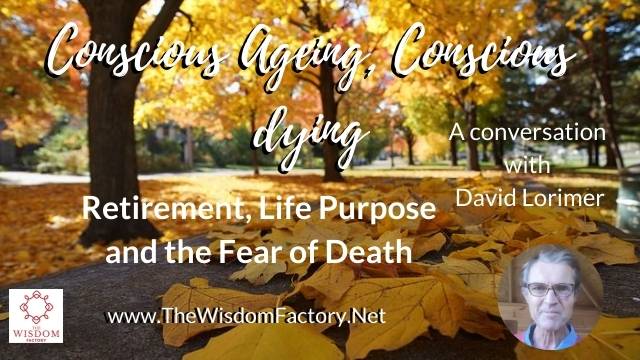
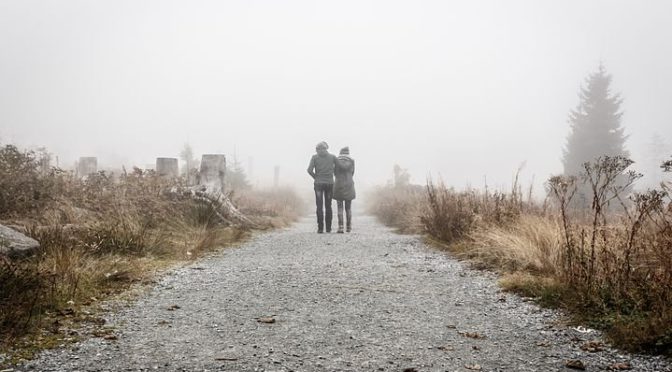
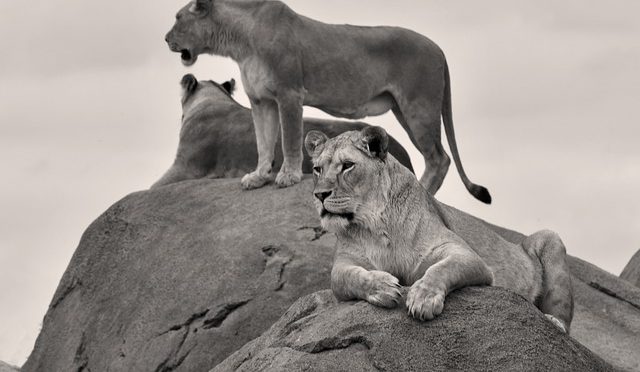

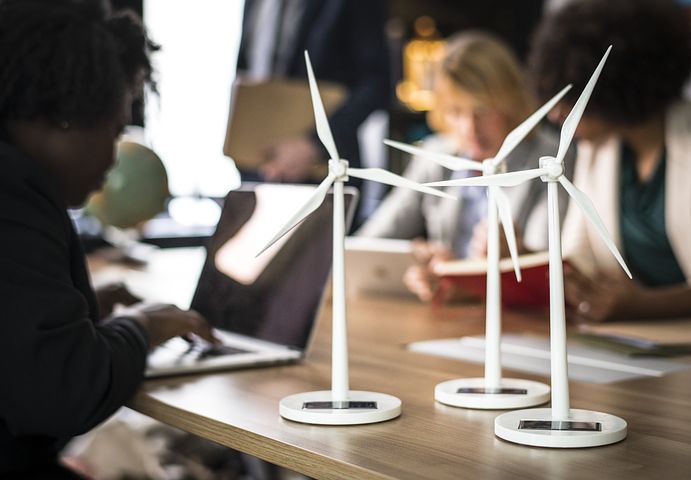
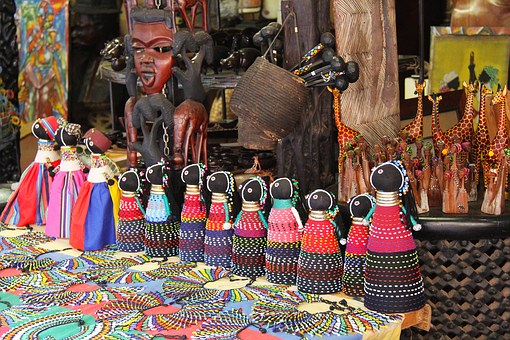


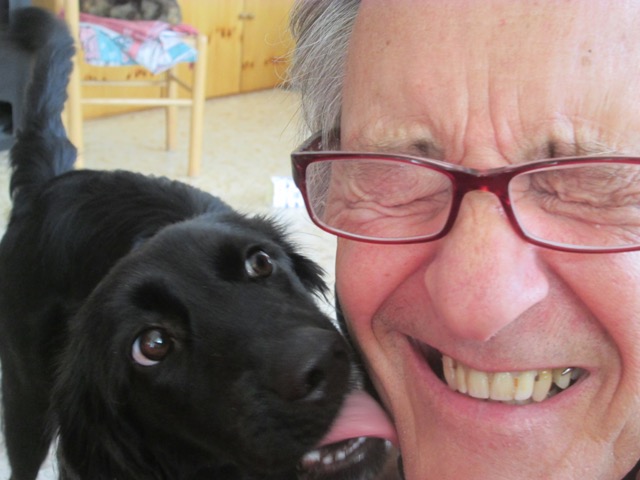
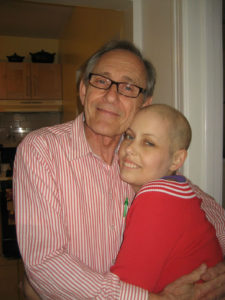 But the cancer continued its cruel route, her years or even months seemed to be very limited. In spring Mark and I went to Chicago to be with her, to lend a hand for taking care of her. Now the effect of the cancer and the aggressive treatments and medications were blatantly visible. It was heartbreaking to see her body deform and her regressing into a little girl so often during these days. She had been such a vigorous, positive and courageous woman before!
But the cancer continued its cruel route, her years or even months seemed to be very limited. In spring Mark and I went to Chicago to be with her, to lend a hand for taking care of her. Now the effect of the cancer and the aggressive treatments and medications were blatantly visible. It was heartbreaking to see her body deform and her regressing into a little girl so often during these days. She had been such a vigorous, positive and courageous woman before!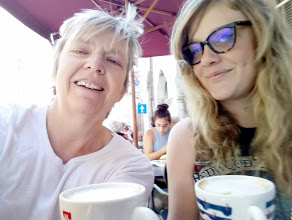 Mark was about to fly back to Chicago a few weeks later. In the morning of his departure from Rome he got the notice that Lilian had died the night before. I can only imagine what that meant for him. At the funeral he met his daughter Claire after a long time and he was really happy about that. They had found a new way of relating and Mark hoped that their relationship would develop into something beautiful from then on. But it didn’t happen. Claire told me why, when she came to see me in July. Mark had passed shortly before and they didn’t have the chance to reconnect in love and friendship. The day of his passing we had scheduled a skype call with Claire, Mark had been very happy about that, but he died a few hours before the appointment.
Mark was about to fly back to Chicago a few weeks later. In the morning of his departure from Rome he got the notice that Lilian had died the night before. I can only imagine what that meant for him. At the funeral he met his daughter Claire after a long time and he was really happy about that. They had found a new way of relating and Mark hoped that their relationship would develop into something beautiful from then on. But it didn’t happen. Claire told me why, when she came to see me in July. Mark had passed shortly before and they didn’t have the chance to reconnect in love and friendship. The day of his passing we had scheduled a skype call with Claire, Mark had been very happy about that, but he died a few hours before the appointment.